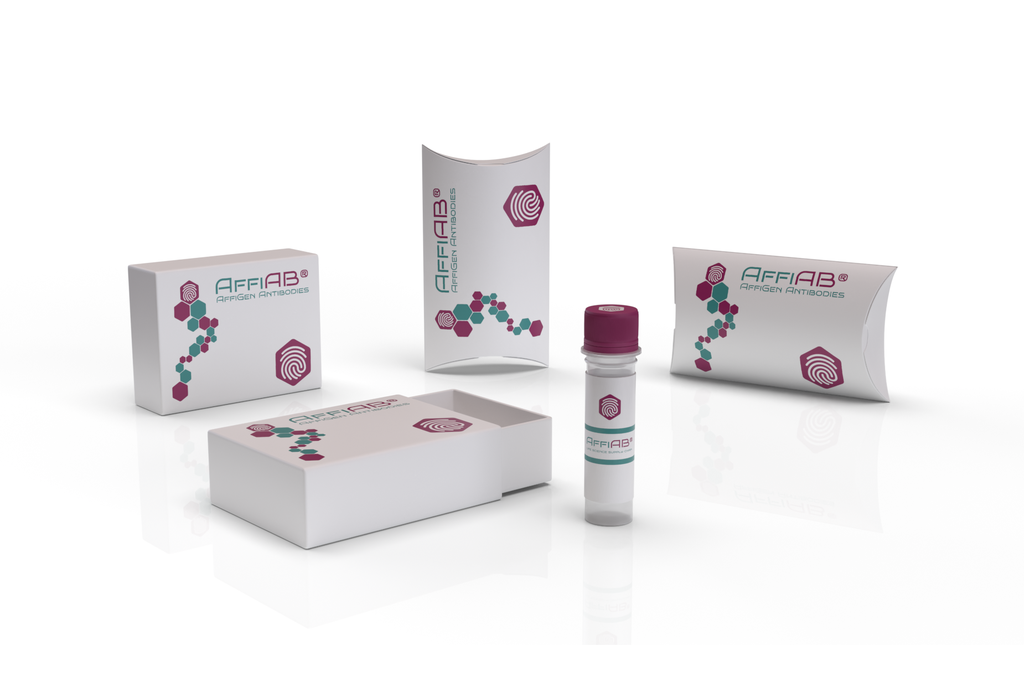AffiAB® Anti-DRP1 Antibody
Dynamin-1-like protein is a GTPase that regulates mitochondrial fission. In humans, dynamin-1-like protein, which is typically referred to as dynamin-related protein 1 (Drp1) , is encoded by the DNM1L gene and is part of the dynamin superfamily (DSP) family of proteins. Mitochondria routinely undergo fission and fusion events that maintain a dynamic reticular network. Drp1 is a fundamental component of mitochondrial fission. Indeed, Drp1 deficient neurons have large, strongly interconnected mitochondria due to dysfunctional fission machinery. Fission helps facilitate mitophagy, which is the breakdown and recycling of damaged mitochondria. Dysfunction in the DRP activity may result in mutated DNA or malfunctioning proteins diffusing throughout the mitochondrial system. In addition, fission results in fragmented mitochondria more capable of producing of reactive oxygen species, which can disrupt normal biochemical processes inside of cells. ROS can be formed from incomplete transfer of electrons through the electron transport chain. Furthermore, fission influences calcium flux within the cell, linking Drp1 to apoptosis and cancer. Several studies have indicated that Drp1 is essential for proper embryonic development. Drp1 knockout mice exhibit abnormal brain development and die around embryonic day 12. In neural specific Drp1 knockout mice, brain size is reduced and apoptosis is increased. Synapse formation and neurite growth are also impaired. A second group of researchers generated another neural specific knockout mouse line. They found that knocking out Drp1 resulted in the appearance of large mitochondria in Purkinje cells and prevented neural tube formation. In humans, loss of Drp1 function affects brain development and is also associated with early mortality.
Antibody type
Rabbit polyclonal Antibody
Uniprot ID
SwissProt: O00429 Human; SwissProt: Q8K1M6 Mouse; SwissProt: O35303 Rat
Recombinant
NO
Conjugation
Non-conjugated
Host
Rabbit
Isotype
IgG
Clone
N/A
KO/KD
N/A
Species reactivity
Human, Mouse, Rat
Tested applications
WB, IF-Cell, FC
Predicted species reactivity
N/A
Immunogen
Recombinant protein within human DRP1 aa 1-736 / 736.
Storage
Store at +4°C after thawing. Aliquot store at -20°C. Avoid repeated freeze / thaw cycles.
Form
Liquid
Storage buffer
PBS (pH7.4) , 0.1% BSA, 40% Glycerol. Preservative: 0.05% Sodium Azide.
Concentration
1 mg/mL.
Purity
Protein A affinity purified.
Signal pathway
N/A
Recommended dilutions
WB: 1:1, 000; IF-Cell: 1:200; FC: 1:500-1:1, 000
Molecular Weight
Predicted band size: 82 kDa
Subcellular location
Cytoplasm, cytosol, Golgi apparatus, Endomembrane system, Mitochondrion outer membrane, Peroxisome, Membrane, clathrin-coated pit, Cytoplasmic vesicle, secretory vesicle, synaptic vesicle membrane.
Positive control
A549 cell lysate, 293 cell lysate, HCT116 cell lysate, Hela cell lysate, NIH/3T3 cell lysate, PC-12 cell lysate, NIH/3T3, 293T.
